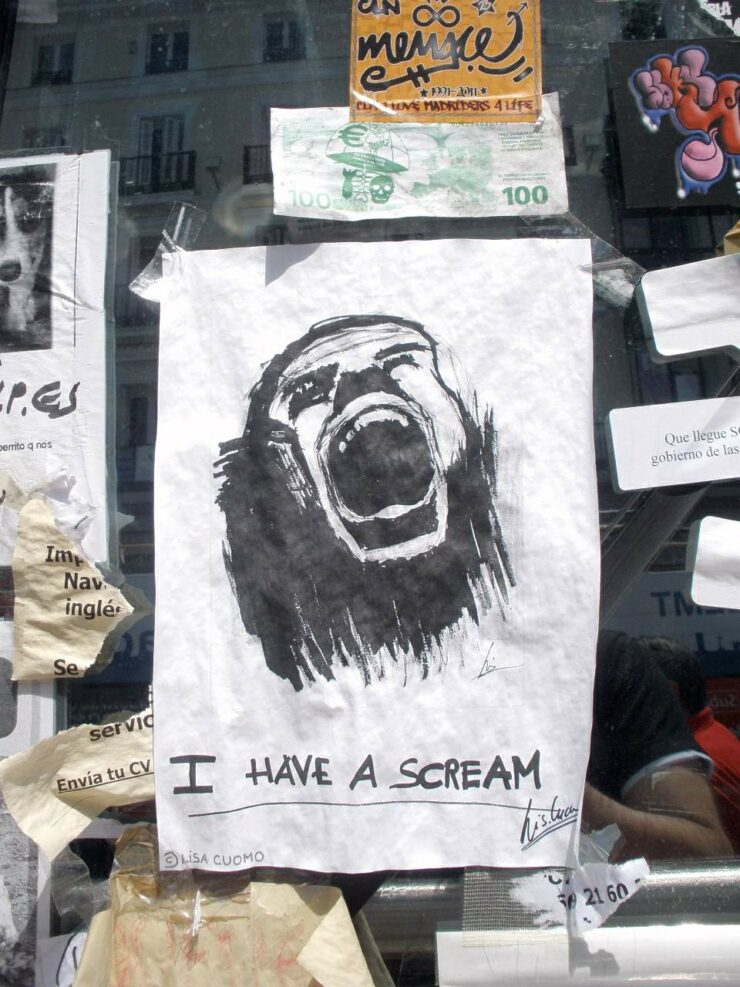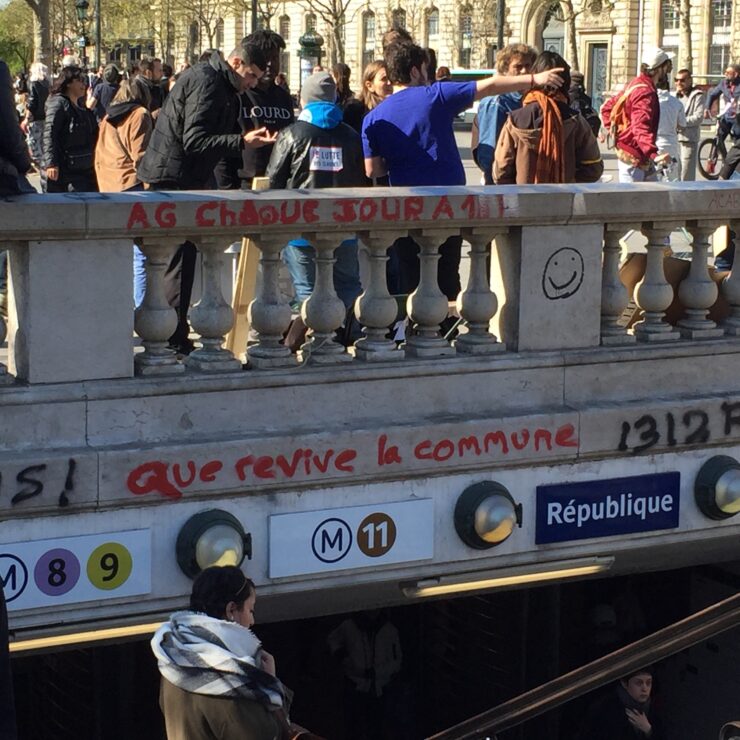Agenda
Remembering Activism Conference: Critical Perspectives on the Memory-Activism Nexus

Agenda
What happens to social movements when their momentum ebbs away, the streets are emptied and campaigning ceases? They become memory. At the core of the Remembering Activism research project at Utrecht University is the claim that protests have afterlives in the stories that are later told about them with the help of texts, images, objects, places; and that the cultural memory of earlier activism informs later movements by shaping actions and expectations, though not necessarily in a linear way. Underlying the study of these dynamics is the fundamental question: how are protest repertoires, ideals, and mobilizing affects transmitted across movements and across generations with the help of media?
Four years ago we set out to study this question and, in focusing on the remembrance of active citizenship and civic resistance, tried to move memory studies away from its traditional interest in war and trauma. A guiding concept in our work has been the idea of a ‘memory-activism nexus’ understood in terms of a feedback loop between the memory of activism, memory in activism, and memory activism (Rigney 2018; see also Daphi and Zamponi 2019). Along the route, we have organized various events on specific subthemes: on images as carriers of protest memory; on the role of words in framing narratives of protest; on archiving as an activist mnemonic practice; on life writing as a medium of activist memory; for details see www.rememberingactivism.eu.
How is activism remembered and how do stories about civil resistance and activist campaigns make a difference to later movements? In the final conference, we want to revisit these core questions, take stock of the answers so far, and above all, enrich the discussion of the memory-activism nexus by bringing in new voices from across a range of disciplines and regions.
Among the issues we will be addressing:
- Are certain cultural forms and mnemonic practices especially important in the remembrance of civil resistance and in the transmission of hope and defiance?
- How are the dynamics of activist memory influenced by changing media ecologies, specifically digital ones?
- How is the memory of activism mobilized in new protest waves?
- How does ‘memory activism’ (movements about memory; Gutman and Wüstenberg 2023) relate to activism directed towards other causes?
- When does activist memory become commodification and mere spectacle? And in whose interest?
- What forms of forgetting operate in activist memory, and (a piece missing here? Or ‘and’ as transition to the final question?)
- Could it be that hope thrives on forgetting the failures of the past rather than on remembering its energies?
For the program in pdf with abstracts and more information on the speakers, click on the following link: Remembering Activism Conference Program.
All are welcome to attend. No registration necessary!
Organisation: Ann Rigney, Lisa van Straten
Information : React@uu.nl
The conference has been financed by the European Research Council under grant agreement 788572.

Program
Wednesday 29 March
13.30-14.00: coffee and registration
14.00-14.15: Welcome and introduction to the ReAct project (Ann Rigney)
14.15- 16.00: Panel 1: Opening perspectives (chair: Astrid Erll)
Priska Daphi (Bielefeld), Mnemonic Adoption and Rejection: How Social Movements Remember and Forget Previous Mobilizations
Kylie Message-Jones (Canberra), Unfinished Business: Heritagization and the Aboriginal Tent Embassy Protest
Jenny Wüstenberg (Nottingham Trent), Grassroots Activism to Remember Family Separation Policies and Abusive Institutions
16.00-16.15: Break
16.15-17.45: Panel 2: Memory in Activism (chair: Reindert Dhondt)
Manuela Badilla (Valparaíso), The Chilean Counter-monument Wave and its Temporal Resonances: Reimagining the Nation in Constituent times
Alexander Ulrich Thygesen (Aarhus), Contentious Activist Monumentalisation: The Emergence of the Matapacos Statue During the Social Outbreak in Chile
Nafiseh Mousavi (Växjö), #Against_forgetting: Activation and Contestation of Resistance-memories in woman, life, freedom
17.45-18.30: Drinks
Thursday 30 March
9.00-9.30: Registration
9.30-11.00: Panel 3: Memory in Activism (chair: Katharyne Mitchell)
Orli Fridman (Belgrade),In Search of Hope in Times of Political Crisis and Loss: The Emergence of a ‘Memory of Activism’ among the 2nd Generation of Memory Activists in Serbia
Eray Çaylı (Hamburg), The (Archi)tectonics of Antiracist Activism in Istanbul: Surviving Violence, Preparing for Disasters
Ann Rigney (Utrecht), Anticipatory Memory in the Self-Archiving of Anti-Austerity Movements
11.00-11.15: Break
11.15-12.45: Panel 4: Digital Ecologies and the Memory-Activism Nexus (chair: José van Dijck)
Samuel Merrill (Umeå), Remembering Like a State? Activist Traces, Surveillance Databases and Nefarious Mediated Prospective Memory
Rik Smit (Groningen),What the Platformization of Memory Means for Activism
Thomas Smits (Antwerp),Space and Place in Online Visual Memory: The Tank Man in Hong Kong, 2013–2020
12.45-13.45: Lunch (buffet served at Drift 21)
13.45- 15.00: Panel 5: The Memory of Activism – Gender (chair: Peyman Amiri)
Lucie Drechselová (EHESS, Paris), Women Activists in Turkey: Life Writing Beyond the Tropes of Victimhood, Heroism, and Empowerment
Dina Heshmat (American University in Cairo and IAS, Nantes), Retrieving the Voices of Women Activists in Egypt 1919: Fikriyya Husni, Amina Thabit and Aziza Fawzi’s Unpublished Letters
15.00 – 15.15: Break
15.15-16.30: Panel 6: The Memory of Activism – Critical Engagements (chair: Chiara de Cesari)
Ahmed Diaa Dardir (Cairo), After the Barricades, Beyond Paris: Recovering the Memory of the Non-European Other in the Afterlives of 1968 and the Commune
Gal Kirn (Ljubljana), Dialectics of Partisan Resistance and Memory: The Case of Women Protests in WW2 Yugoslavia
16.30: Close
Friday 31 March
9.00- 10.15: Panel 7: The Memory of Activism – Performance (chair: Clara Vlessing)
Daniele Salerno (Utrecht), Walks, Marches, Parades: Mobilising Memories in LGBT+ Activism
Judith Naeff (Leiden), The Queer Joy of Historical Drag: Re-enacting Revolutionary Pasts in Lebanon
10.15-10.30: Break
10.30- 12.00: Panel 8: The Memory of Activism – Counter-currents (chair: Marco de Waard)
Tashina Blom (Utrecht), My Body My Choice: The Appropriation of Cultural Memory in Anti-vaccine Movements
Duygu Erbil (Utrecht), A “Commodified” Revolutionary in the Circuit of Cultural Memory
Sophie van den Elzen (Utrecht), Rudi Dutschke Retold: European Liberal Newspapers and the Legacy of 1968
12.00-12.15: Break
12.15-12.45: Final session (chair: Ann Rigney)
Astrid Erll (Frankfurt), Closing Thoughts and Take-Aways
Followed by general discussion.
12.45: Closing

